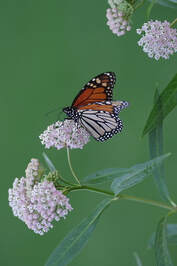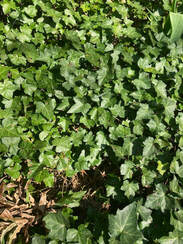
Drinking water is important for birds and other animals, especially during dry spells during the summer and throughout the winter. Birds must keep their feathers well-maintained for flying and as insulation, so a source of shallow water for bathing is crucial for their health. Place the bird bath close to shrubs or trees where they can escape if predators come by. Change the water daily to prevent mosquito larvae from hatching in the summer and to replace ice in the winter.
Bird baths can either sit on a stand or can be hanging. Having a removable shallow pan allows for easy cleaning in summer and ice removal in the winter. Alternate between two pans in the winter when the water freezes – turn over the frozen pan on the ground to allow the ice to melt enough to fall out, and while that one defrosting, fill the second one for the birds!
Read more from Penn State Extension.
Photo by Susan O'Donnell










 RSS Feed
RSS Feed